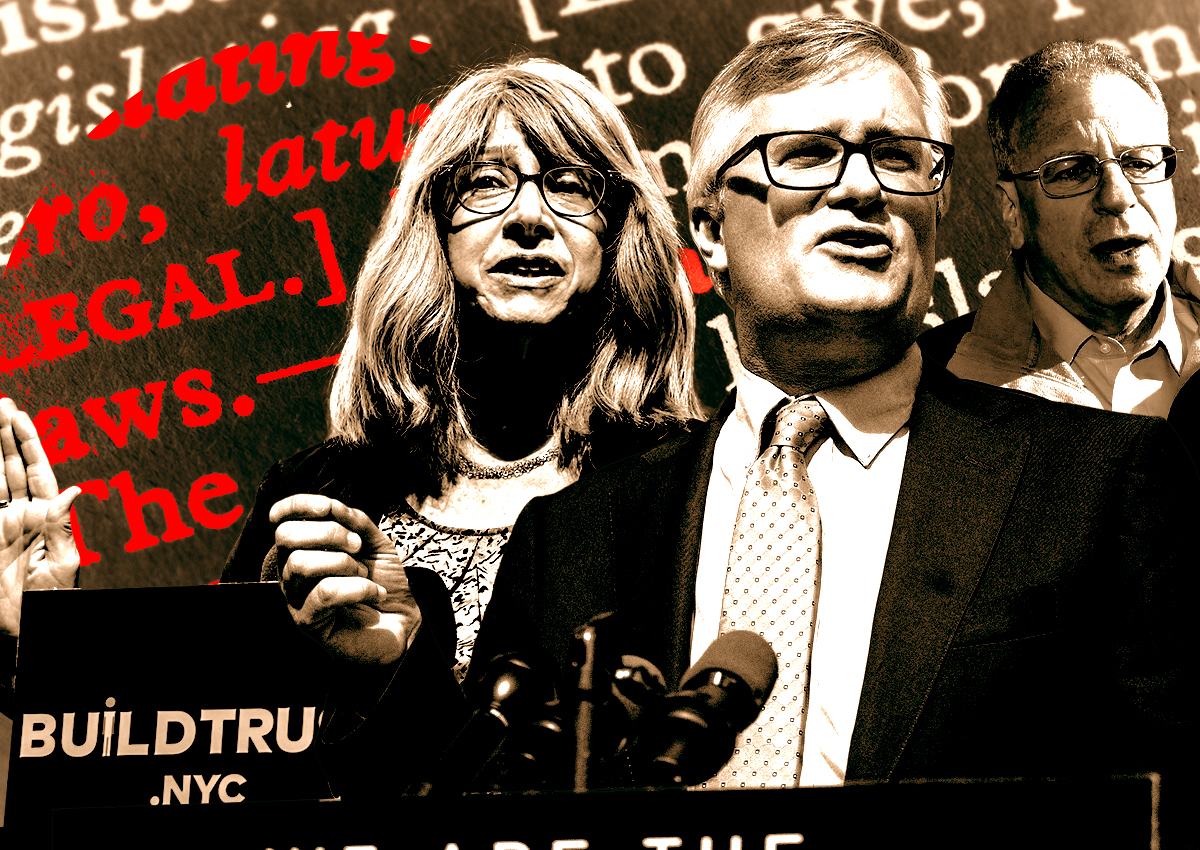Landlords called it a disaster. Tenant advocates hailed it as a victory. But it turns out that a bill signed by the governor last month actually falls somewhere in between.
The bill that Gov. Kathy Hochul signed broadens the definition of fraud in rent overcharge cases, but chapter amendments released Friday show she insisted the legislature eliminate some of the provisions most feared by landlords.
The original bill approved by the legislature would have held landlords liable for fraud in cases where an apartment shouldn’t have been deregulated, even if the owner did not realize it was improper.
Heeding the governor’s demand, the state Assembly introduced chapter amendments for the bill that require a court to establish that an owner “knowingly” committed fraud. Real estate attorney Sherwin Belkin noted that the measure still expands the definition of fraud. He said the measure remains damaging to the real estate industry.
“I think it creates liabilities that were not there before,” he said. “Adding the word ‘knowingly’ helps, but it still changes the dynamic significantly.”
The amendments also remove a provision that Belkin said would have resulted in “chaos and endless litigation.” It required owners who deregulated their buildings decades ago through substantial rehabilitation to prove to the state’s housing regulator that it was done so legally.
With the amendments, the law will require property owners who start substantial rehab work on or after Jan. 1, 2024, to apply for approval with the Department of Homes and Community Renewal. The measure no longer applies retroactively, meaning long-ago removals of buildings from rent stabilization can no longer be undone because the current owner can’t find the paperwork.
The Senate still needs to introduce its chapter amendments. The legislature must pass these measures, which will then be signed by the governor.
The changes were a win for landlords, as was the governor’s veto last month of a bill that would have allowed tenants to consult rent histories beyond the usual four-year lookback when seeking to calculate their legal rent after June 14, 2019.
Ellen Davidson, a staff attorney with the Legal Aid Society, said she always understood the fraud standard to be that landlords committed such acts knowingly. Thus, she found “landlords’ concerns about innocent landlords being caught up in some fraud trap to be overblown.”
She said the measure returns the definition of fraud to standards held before a state appeals court decision that made it more difficult for tenants to bring fraud cases.
Davidson said the law still adds transparency to the substantial rehabilitation process.
“At least, going forward, landlords who do substantial rehab will have to apply for deregulation so that everyone is analyzing these applications based on actual knowledge of what happened,” she said by email.
The new law also creates rules for setting new rents for vacant, rent-stabilized units that are combined with another unit. HCR approved similar rules in October, but codifying these regulations could deter legal challenges from landlords. The law clarifies that the new rent cannot be higher than the combined rents of the individual units that were merged.
Combining units to make so-called “Frankenstein” apartments had been one of the few ways to substantially raise stabilized rents after the 2019 rent reform. Landlords had kept some units off the market in the hopes that an adjacent one would also become vacant, allowing them to be combined and a new base rent established.
Read more



